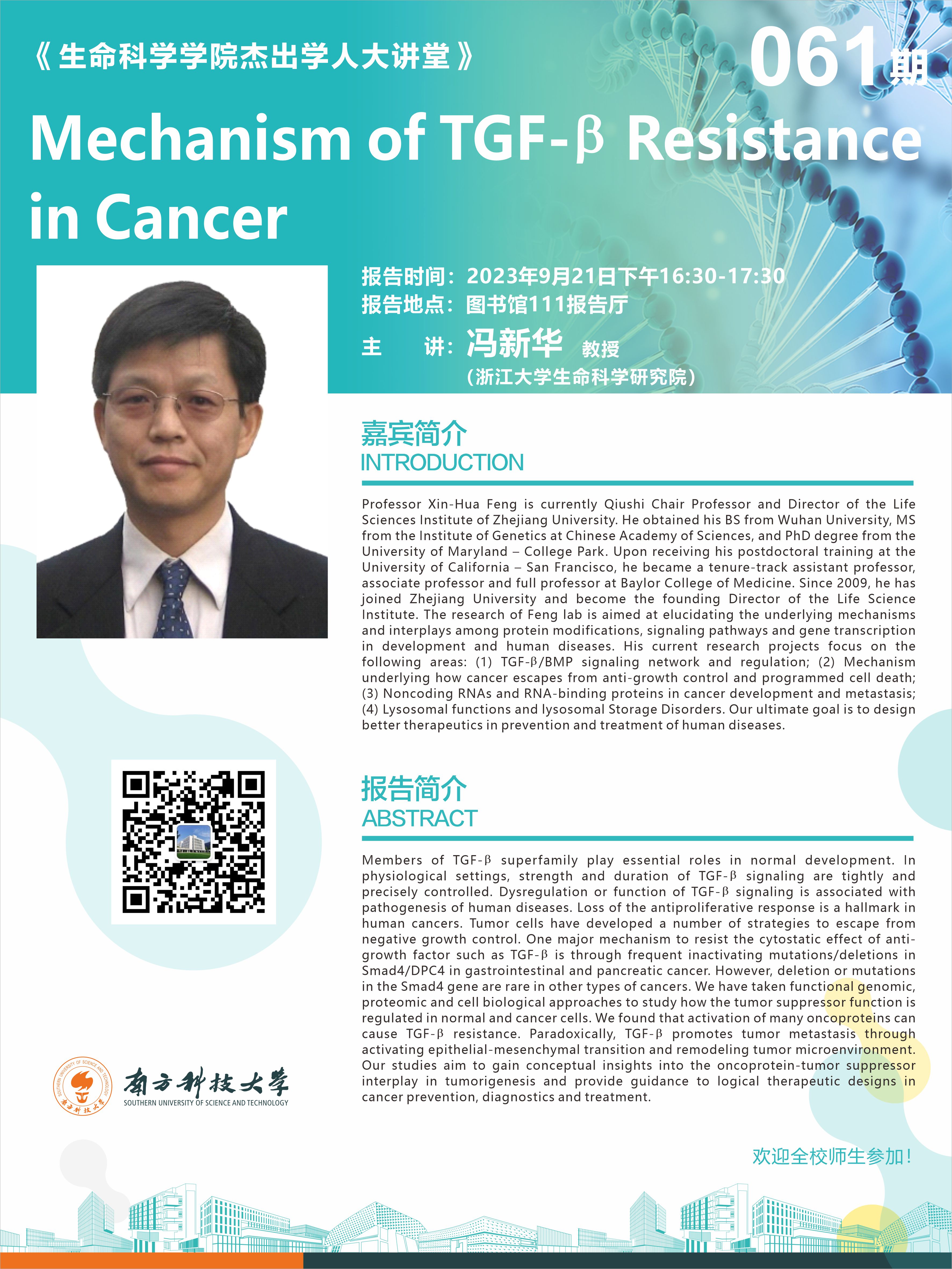
主讲人: 冯新华 教授(浙江大学生命科学研究院)
时间: 2023年9月21日下午16:00-17:30
地点: 琳恩图书馆111报告厅
题 目:Mechanism of TGF-β Resistance in Cancer
主 讲:冯新华 教授
时 间:2023年9月21日下午16:00-17:30
地 点:琳恩图书馆111报告厅
报告摘要:
Members of TGF-β superfamily play essential roles in normal development. In physiological settings, strength and duration of TGF-β signaling are tightly and precisely controlled. Dysregulation or function of TGF-β signaling is associated with pathogenesis of human diseases. Loss of the antiproliferative response is a hallmark in human cancers. Tumor cells have developed a number of strategies to escape from negative growth control. One major mechanism to resist the cytostatic effect of anti-growth factor such as TGF-β is through frequent inactivating mutations/deletions in Smad4/DPC4 in gastrointestinal and pancreatic cancer. However, deletion or mutations in the Smad4 gene are rare in other types of cancers. We have taken functional genomic, proteomic and cell biological approaches to study how the tumor suppressor function is regulated in normal and cancer cells. We found that activation of many oncoproteins can cause TGF-β resistance. Paradoxically, TGF-β promotes tumor metastasis through activating epithelial-mesenchymal transition and remodeling tumor microenvironment. Our studies aim to gain conceptual insights into the oncoprotein-tumor suppressor interplay in tumorigenesis and provide guidance to logical therapeutic designs in cancer prevention, diagnostics and treatment.
嘉宾简介:
Professor Xin-Hua Feng is currently Qiushi Chair Professor and Director of the Life Sciences Institute of Zhejiang University. He obtained his BS from Wuhan University, MS from the Institute of Genetics at Chinese Academy of Sciences, and PhD degree from the University of Maryland – College Park. Upon receiving his postdoctoral training at the University of California – San Francisco, he became a tenure-track assistant professor, associate professor and full professor at Baylor College of Medicine. Since 2009, he has joined Zhejiang University and become the founding Director of the Life Science Institute. The research of Feng lab is aimed at elucidating the underlying mechanisms and interplays among protein modifications, signaling pathways and gene transcription in development and human diseases. His current research projects focus on the following areas: (1) TGF-b/BMP signaling network and regulation; (2) Mechanism underlying how cancer escapes from anti-growth control and programmed cell death; (3) Noncoding RNAs and RNA-binding proteins in cancer development and metastasis; (4) Lysosomal functions and lysosomal Storage Disorders. Our ultimate goal is to design better therapeutics in prevention and treatment of human diseases.